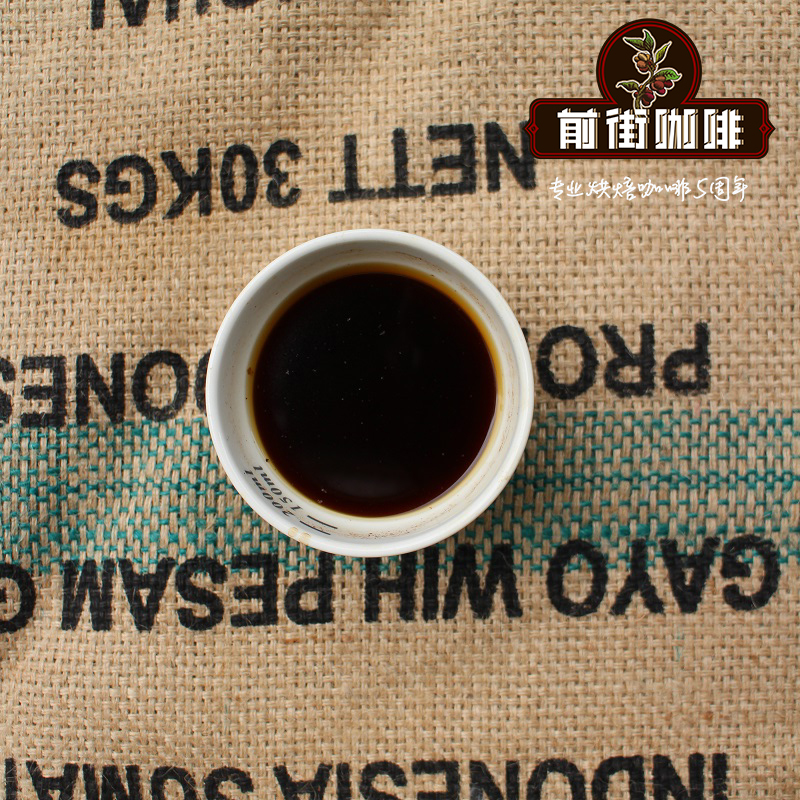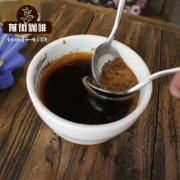Dehong Coffee planting History _ Dehong small Coffee which brand is good _ what brand does Dehong Coffee have

Professional coffee knowledge exchange more coffee bean information please follow the coffee workshop (Wechat official account cafe_style)
Coffee is one of the most popular drinks in the world today, with global consumption of more than 1.5 billion cups a day. Yunnan is an important coffee production base in the world, and when we look back at the history of coffee cultivation in Yunnan, it is generally believed that the person who linked coffee with Yunnan was Ola Hansen, a missionary who preached on the Sino-Burmese border at the end of the 19th century. The Jingpo area of Dehong was the place where Chinese mainland first introduced coffee.
● 1890 missionaries brought coffee to the Jingpo area on the Sino-Burmese border.
In 1890, American Christian missionary Ola Hansen and his wife arrived at the Sino-Burmese border to preach. He lived in Kachin (Jingpo) for 38 years (1890-1928).
Here, with the help of Dumonuo, a famous figure of the Jingpo nationality, Ola Hansen created the Kachin character based on the Roman alphabet. In 1893 (the 19th year of Guang Xu in the Qing Dynasty), Kachin (Jingpo) was officially recognized and promoted. Coffee was introduced to the Jingpo area of Ruili with the spread of Christian culture and the promotion and use of Jingpowen.
In 1908, Ruili Nongxian Shan Guan Zaoshanuo married his first wife, and the coffee seeds in the dowry took root with the arrival of the bride, and later became the source of coffee seeds in the early days of the rise of China's coffee industry from 1951 to 1962.
Coffee-making utensils used by people in Jingpo in the early days of ●
Jingpo coffee starts a prairie fire with a single spark
In 1951, the cotton experimental station of Luxi County, Dehong Prefecture introduced coffee seeds from China and Myanmar for the first time, carried out the productive cultivation project of coffee, breeding and planting 6 mu, and grew well.
In the spring of 1952, the scientific and technical personnel of Mangshi Branch of Yunnan Agricultural Experimental Farm brought more than 70 kilograms of fresh fruit from Ruili Nongxian Village back to Lujiangba for trial planting, and found that they had good adaptability and good quality, and coffee cultivation in Yunnan has been growing ever since.
Nestl é entered Yunnan in 1988. By the end of 1997, the planting area of coffee in Yunnan had reached 7800 hectares, accounting for 83% of the country's total output. By 2016, the planting area of coffee in Yunnan will be 1.77 million mu, with a total output of 139000 tons, accounting for more than 99 percent of the country's total.
Dehong, the hometown of ● Coffee in China
In the Division of Tropical crop planting Industry in Yunnan Province, Dehong Prefecture is listed as the best suitable area for the growth of small-grain coffee, and the land area suitable for coffee planting in Dehong Prefecture is more than 500000 mu. In 2010, Dehong was awarded the title of "hometown of Coffee in China" by the recommendation and publicity campaign Organizing Committee of Chinese specialties.
Dehong Prefecture also has the largest coffee seed gene bank in China-Ruili Coffee Germplasm Resources Garden of the Ministry of Agriculture, which is one of the first nine tropical crop germplasm nurseries granted by the Ministry of Agriculture.
Dehong Coffee is mainly grown in small seeds, and has set a national record for per unit yield of 363.5 kg of coffee beans (the average yield of coffee beans per mu in China is about 80 Mu 100 kg). By the 2016-2017 production season, the area of Dehong Coffee has grown to 270000 mu and the output of fresh fruit is 250000 tons.
At the first Asian Coffee Annual meeting held on November 18, 2016, the Asian Coffee Annual meeting was permanently located in Dehong City, Yunnan Province.
● gave birth to a local coffee brand-Hougu.
Dehong's Hougu is the first local coffee brand in China, and its coffee products have been exported to more than 50 countries and regions, including the United Kingdom, the United States, South Korea and Singapore.
On February 20, 2017, Foreign Minister Wang Yi praised Hougu Coffee at the global promotion event of "glamorous Yunnan, World sharing": "the brand of coffee I just drank is Hougu. I am not exaggerating this coffee. I have traveled all over the world." the best coffee of all countries in the world.
In 2017, Dehong small Grain Coffee was selected into the first batch of dominant areas of agricultural products with Chinese characteristics, which is considered to have significant advantages and has the basic conditions for the development of "China first, world-famous" coffee industry.
At present, the most famous brand of Yunnan small grain coffee is "Hougu" (once a coffee raw material supplier of Nestl é, because Nestle's purchase price is too low, Hougu unilaterally suspended cooperation, and is now also a raw material supplier of Starbucks). It is a local brand with a long history, but what about the external sales department, but many Taiwanese and Southeast Asians come to buy it. These are probably the ones that really form brands, and then there are a lot of small brands. If it is a gift, it is recommended to use Hougu, after all, Yunnan's most famous brand, Yunnan's first well-known trademark of coffee in China, if you drink it yourself, it is recommended to buy Yunfu, which is relatively cost-effective.
END
Important Notice :
前街咖啡 FrontStreet Coffee has moved to new addredd:
FrontStreet Coffee Address: 315,Donghua East Road,GuangZhou
Tel:020 38364473
- Prev

Taste of Colombian Huilan Coffee how does Colombian Huilan hit the Colombian Huilan producing area
Professional coffee knowledge exchange more information about coffee beans Please pay attention to the coffee workshop (Wechat official account cafe_style) few countries have more famous coffee than Colombia. No region in Colombia produces more coffee than Huilan, which is located in the mountains of the southwest. According to data from the Colombian Coffee Growers Federation (FNC), in 2016, Huilan produced
- Next

Introduction of the most popular varieties of Dehong Coffee
Professional coffee knowledge exchange more coffee bean information please follow Coffee Workshop (Wechat official account cafe_style) Dehong Dai Jingpo Autonomous Prefecture is a prefecture-level administrative region of Yunnan Province, located in western Yunnan Province, covering an area of 11500 square kilometers, Mangshi, Ruili City, Lianghe County, Yingjiang County, Longchuan County. It is adjacent to Baoshan to the east, and is surrounded by Myanmar on the north, west and south.
Related
- Detailed explanation of Jadeite planting Land in Panamanian Jadeite Manor introduction to the grading system of Jadeite competitive bidding, Red bid, Green bid and Rose Summer
- Story of Coffee planting in Brenka region of Costa Rica Stonehenge Manor anaerobic heavy honey treatment of flavor mouth
- What's on the barrel of Blue Mountain Coffee beans?
- Can American coffee also pull flowers? How to use hot American style to pull out a good-looking pattern?
- Can you make a cold extract with coffee beans? What is the right proportion for cold-extracted coffee formula?
- Indonesian PWN Gold Mandrine Coffee Origin Features Flavor How to Chong? Mandolin coffee is American.
- A brief introduction to the flavor characteristics of Brazilian yellow bourbon coffee beans
- What is the effect of different water quality on the flavor of cold-extracted coffee? What kind of water is best for brewing coffee?
- Why do you think of Rose Summer whenever you mention Panamanian coffee?
- Introduction to the characteristics of authentic blue mountain coffee bean producing areas? What is the CIB Coffee Authority in Jamaica?

